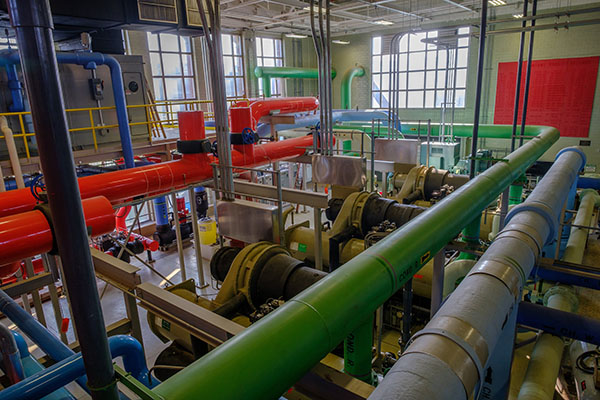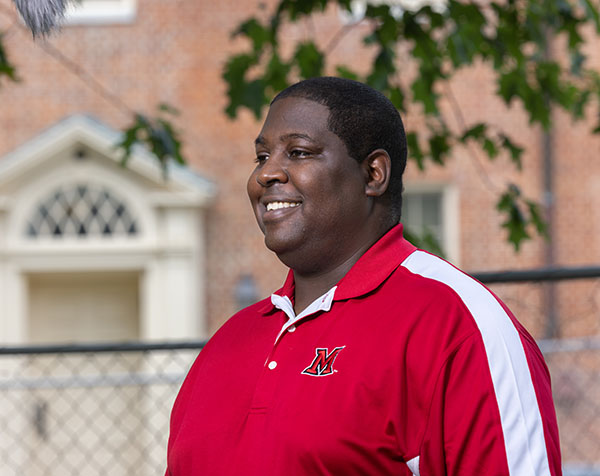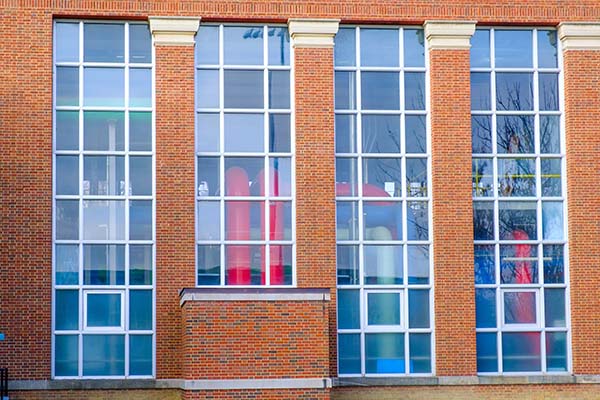Transforming energy systems, paving the pathway to carbon neutrality: A Q-and-A with Malcolm Drane, director of Energy Systems
Every unit of energy that we as a community can conserve through personal conservation measures furthers the impact of the energy systems transformation projects which have been implemented and are already planned, Drane said

Transforming energy systems, paving the pathway to carbon neutrality: A Q-and-A with Malcolm Drane, director of Energy Systems

What drew you to the position of director of Energy Systems at Miami?
As I began to look into what this transition would mean for me professionally, I found a university with a stated commitment to sustainability, which is not uncommon, but had followed up this commitment with action in the form of the Utility Master Plan.
Taking it a step further, what truly set Miami apart was the commitment to executing the steps laid out in the master plan, evidenced by tremendous energy reduction and financial commitment to utility infrastructure and improvement projects. With these factors in mind, I knew this would be a good fit where I could experience a long and rewarding career while providing value to the university.
On a personal note, Drane, who now lives in Oxford with his wife and young children, said, “Growing up in Cincinnati and having family in Columbus, the move represented an opportunity to be closer to home and family, which was a definite plus. I had the chance to attend various sports camps at Miami, and my brother and sister-in-law are Miami alumni.”

What can you tell us about the upcoming North Chiller Plant conversion to geothermal heating and cooling?
The conversion of the North Chiller Plant (NCP) to geothermal heating and cooling is the next large step toward carbon neutrality and energy reduction through the execution of the Utility Master Plan.
This project will provide geothermal heating and cooling for the buildings currently served by the North Chiller Plant (NCP).
The project will also convert Millett Hall and the Walter L. Gross Family Student-Athlete Development Center from steam to low-temperature heating water (LTHW).
The university recently solicited qualifications from several design firms. The selected firm has already begun designing the 1,100 individual 600-foot deep geothermal wells the system needs for the project.
A project of this magnitude has inherent challenges, which often become more complicated by the need for the campus to remain functional while occupied. The design firm is keenly aware of these challenges. They are phasing the project to allow heating and cooling to stay available from the NCP throughout the project while minimizing the impact to campus customers.
The drilling of the wells is the most time-consuming aspect of the project, and as such, we are looking to begin this work as early as November. While the wells are being drilled, there will be a significant impact on the "normal" use of the Millett parking lot. At this time, the exact magnitude and duration are unknown, but all efforts are being made to minimize the impact where possible.
The anticipated completion date for this project is 2025.
Speaking of geothermal: Do you give tours of the Western geothermal heat exchange facility?
Tours of the Western geothermal plant are available and are typically coordinated by faculty or student organizations. However, I am considering a mechanism to open this up to individuals and Oxford community members while considering measures to keep the staff who provide those tours and work in the facility manageable.
What would you like the Miami community to know about energy use/energy systems on campus?
Miami stands significantly further in its journey toward carbon neutrality and energy reduction and continues to be an innovator amongst colleges and universities. The administration has taken a powerful position to prioritize these objectives.
Still, I would also implore the community to consider their actions and their impact on the overall sustainability landscape.
While projects like the NCP conversion represent significant impacts in these areas, the choices of individuals play a huge part in meeting these goals as well.
Every unit of energy that we as a community can conserve through personal conservation measures (turning off lights, limiting the duration of running hot water, adjusting space temperatures, etc.) is energy that the university doesn't have to try to offset in an energy-efficient manner and furthers the impact of the projects which have been implemented and are already planned.
What is one of your favorite things about working in energy systems at Miami?
My response may sound cliche, but one of my favorite things about working in energy systems is the people I work alongside daily. I enjoy knowing the behind-the-scenes effort that goes into making Miami what it is and having that work positively impact a community member.